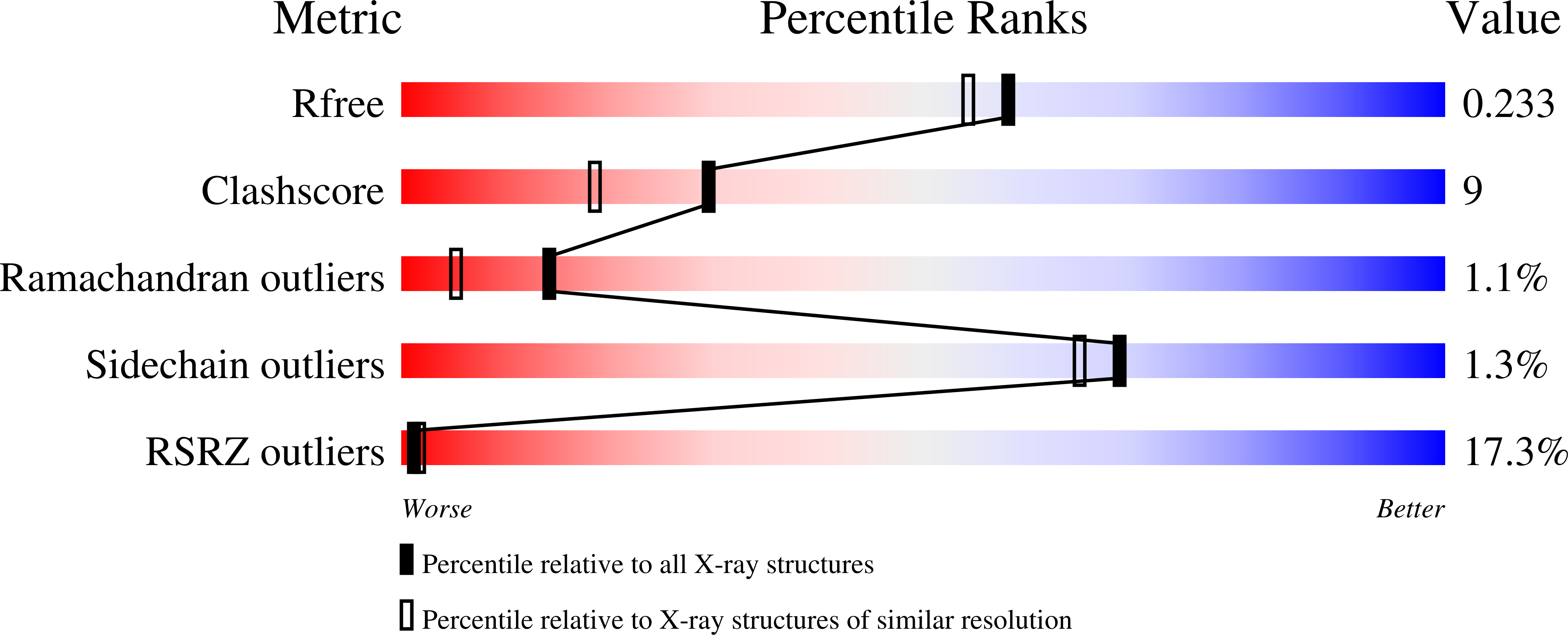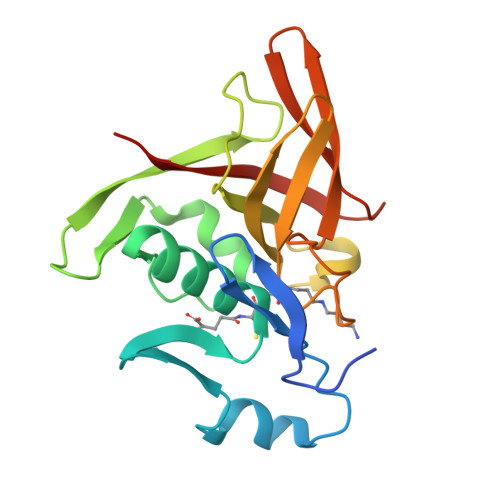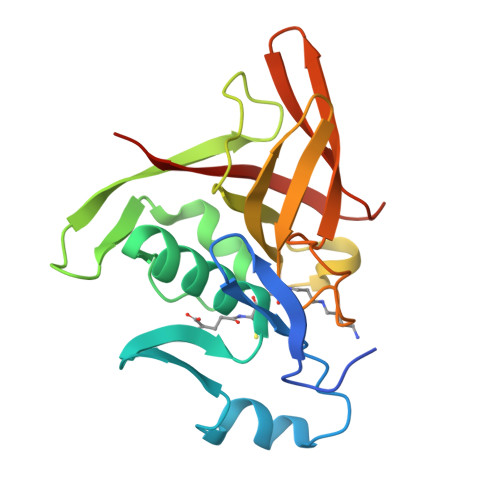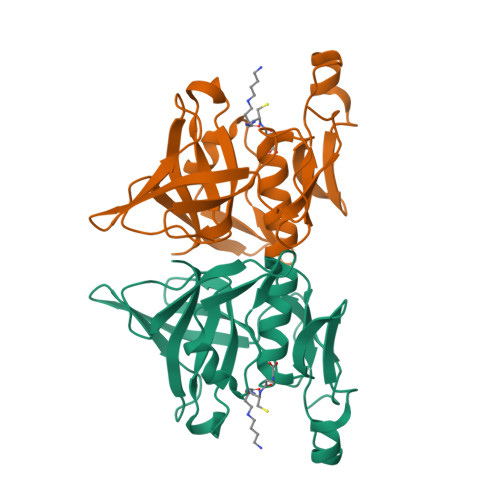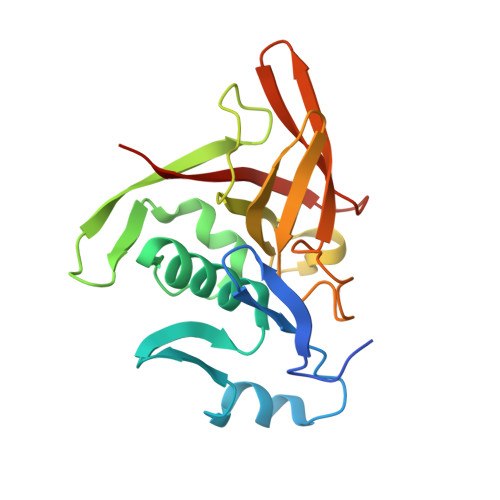Structure and mechanism of Escherichia coli glutathionylspermidine amidase belonging to the family of cysteine; histidine-dependent amidohydrolases/peptidases
Pai, C.-H., Wu, H.-J., Lin, C.-H., Wang, A.H.-J.(2011) Protein Sci 20: 557-566
- PubMed: 21226054
- DOI: https://doi.org/10.1002/pro.589
- Primary Citation of Related Structures:
3A2Y, 3O98 - PubMed Abstract:
The bifunctional Escherichia coli glutathionylspermidine synthetase/amidase (GspSA) catalyzes both the synthesis and hydrolysis of Gsp. Its amidase domain (GspA), which catalyzes the hydrolysis of Gsp into glutathione and spermidine, plays an important role in redox sensing and protein S-thiolation. To gain insight of the regulation and catalytic mechanism of and further understand the recycling of the Gsp dimer and Gsp-S-protein adducts, we solved two crystal structures of GspA and GspSA both with the C59A mutation and bound with the substrate, Gsp. In both structures, Cys59, His131, and Glu147 form the catalytic triad, which is similar to other cysteine proteases. Comparison of the GspA_Gsp complex and apo GspSA structures indicates that on binding with Gsp, the side chains of Asn149 and Gln58 of the amidase domain are induced to move closer to the carbonyl oxygen of the cleaved amide bond of Gsp, thereby participating in catalysis. In addition, the helix-loop region of GspA, corresponding to the sequence (30)YSSLDPQEYEDDA(42), involves in regulating the substrate binding. Our previous study indicated that the thiol of Cys59 of GspA is only oxidized to sulfenic acid by H(2)O(2). When comparing the active site of GspA with those of other cysteine proteases, we found that limited space and hydrophobicity of the environment around Cys59 play an important role to inhibit its further oxidation. The structural results presented here not only elucidate the catalytic mechanism and regulation of GspA but also help us to design small molecules to inhibit or probe for the activity of GspA.
Organizational Affiliation:
Institute of Biological Chemistry, Academia Sinica, Taipei 11529, Taiwan.







